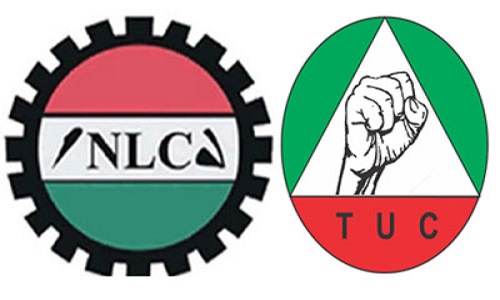
NLC and TUC Organized Labour proposes ₦615,000 Naira as minimum wage as they intensify demands for workers
In a renewed effort to address the needs of workers in Nigeria, the Nigerian Labour Congress (NLC) and Trade Union Congress (TUC) have jointly proposed a new minimum wage of ₦615,000 Naira per month. This move comes after extensive consultations and discussions within the organized labour sector.
An anonymous source within the Organised Labour executives revealed that the proposed monthly minimum wage of ₦615,000 reflects the current realities and challenges faced by workers in the country. However, the source also hinted that the wage demand may increase further due to the recent hike in electricity tariffs.
The proposal was communicated to the government, as confirmed by the source: “We (NLC and TUC) have given our figures to the government (on the minimum wage), and it is ₦615,000. That is the position of the NLC and TUC on the matter. The government has been informed as well.”
To address the issue of determining a new national minimum wage, President Bola Tinubu established a 37-member panel, which includes representatives from federal and state governments, the private sector, and organized labour. The panel, chaired by former Head of the Civil Service of the Federation, Bukar Aji, was tasked with recommending a fair, practical, implementable, and sustainable minimum wage.
The urgency of the matter was emphasized during the panel’s inaugural meeting, as the current minimum wage of ₦30,000 expired at the end of March 2024. The panel aims to expedite the resolution process and submit its report promptly.
The proposed ₦615,000 minimum wage has sparked debates among economists and experts. While some argue for the necessity of a higher minimum wage to combat poverty, others raise concerns about its feasibility and sustainability. Professor Sheriffdeen Tella from Olabisi Onabanjo University suggests that the government should enforce compliance with the law, ensuring that both the private and public sectors adhere to the agreed minimum wage.
Professor Adeola Adenikinju from the University of Ibadan acknowledges the involvement of state governments and the private sector in implementing the new minimum wage. He emphasizes the need to consider the diverse economic landscapes across states, suggesting that a uniform minimum wage may not be viable due to varying levels of affordability.
Economist Paul Alaje highlights the potential challenges faced by states in implementing the proposed minimum wage, particularly for the 30 out of 36 states that may struggle to align with the payment of ₦615,000. He proposes that special assistance from the Federal Government and intervention funds from international communities should be contingent on states clearing previous salary arrears.
With negotiations ongoing, organized labour remains committed to advocating for the welfare of workers. The proposed minimum wage serves as a starting point for discussions between the government and labour representatives, with both parties expected to present their positions and engage in further negotiations.











